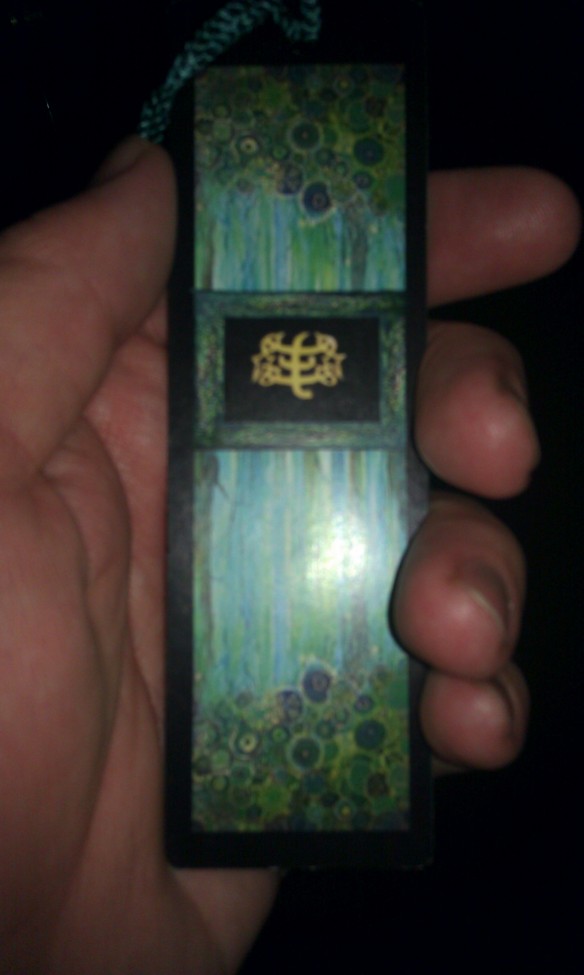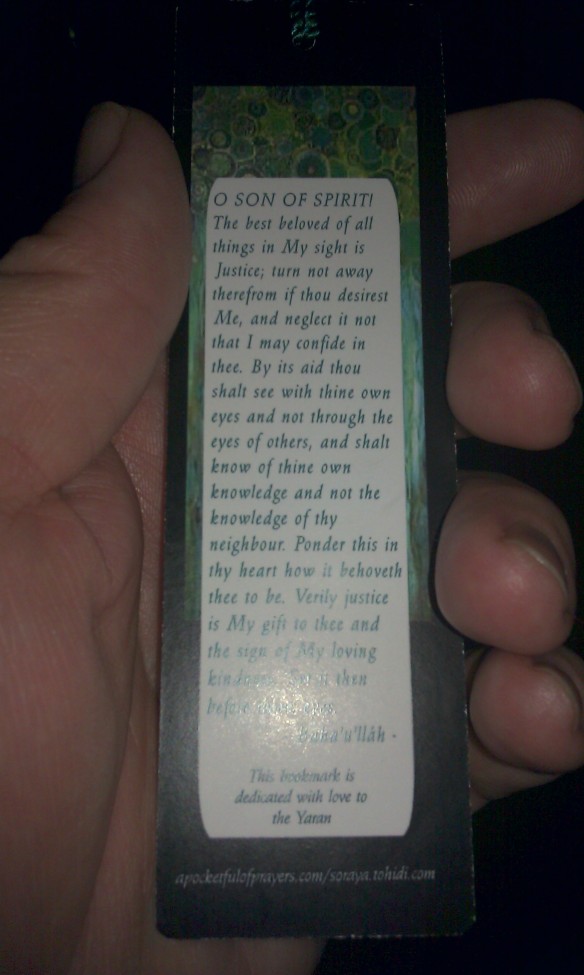Soundtrack in my head: The Alarm, “The Stand”
 I received my Bachelor’s in Political Science many moons ago, and for most of the period since then, I have struggled with my feelings about politics, social justice, and political activism. This inner struggle has only intensified since I became a Bahá’í. To document the evolution of my feelings about politics and my political beliefs would take several blog posts itself, so I won’t do that here.
I received my Bachelor’s in Political Science many moons ago, and for most of the period since then, I have struggled with my feelings about politics, social justice, and political activism. This inner struggle has only intensified since I became a Bahá’í. To document the evolution of my feelings about politics and my political beliefs would take several blog posts itself, so I won’t do that here.
Without going into detail, suffice it to say that 1) I have been disgusted with American politics for a very long time, and with each passing year, it has felt like a toxic cesspool I would not want to touch with a ten-foot pole even when wearing a hazmat suit 2) I feel that there are fundamental and urgent changes that need to be made in society–changes that start within all of us–that will not be achieved in the arena of politics as usual, but 3) as government and corporate policy begin to touch more and more parts of our lives and as the times grow more uncertain, it becomes more and more difficult to separate one’s daily life from the news of the day, and 4) I feel increasingly uncomfortable being silent in the face of vast violations of justice and mounting oppression–particularly oppression occurring in or originating in this country.
This swirl of feelings began to accelerate even more six weeks ago when I started a class in my graduate program about macro scale social work–social work that touches upon, examines, or seeks changes in social policy. This particular class is the last of a long day of classes on Saturdays. A friend always drives me home afterwards since it is convenient for her and provides us the opportunity to chat. Such discussions recently have revolved around what was just discussed in class, and our related feelings and frustrations about social policy, social justice, power, and the seeming impossibility of change in the corrupt winner-take-all system that has become American politics. It was after such a discussion the weekend before last–a little more than four hours before the sunset that would mark the beginning of the first day of Ridvan–that I got out of my friend’s car as she dropped me off at home.
I was greeted at the door by a four-year old girl who has lived in our co-op house ever since she was six weeks old. Since I’ve known her pretty much her entire life and because we’re both Cancers, a remarkable bond exists between us.
So it wasn’t unusual for her to be greeting me at the door. However, what she was holding in her hand was quite unusual and unexpected.
 No one in her family is a Bahá’í, but here she was greeting me and holding a Bahá’í bookmark wrapped in cellophane. She told me she found this bookmark underneath the couch. She showed it to her mom and her mom told her to give it to me.
No one in her family is a Bahá’í, but here she was greeting me and holding a Bahá’í bookmark wrapped in cellophane. She told me she found this bookmark underneath the couch. She showed it to her mom and her mom told her to give it to me.
What immediately struck me about this bookmark were the words written on it:
O SON OF SPIRIT! The best beloved of all things in My sight is Justice; turn not away therefrom if thou desirest me, and neglect it not that I may confide in thee. By its aid though shalt see with thine own eyes and not through the eyes of others, and shalt know of thine own knowledge and not the knowledge of thy neighbour. Ponder this in thy heart how it behoveth thee to be. Verily justice is My gift to the and the sign of My loving kindness. set it then before thine eyes.—Bahá’u’lláh
This quote is one that is quite familiar to me, as it is the second verse in The Hidden Words, a book of short verses–seventy-one in Arabic and eighty-two in Persian– written by Bahá’u’lláh in an effort to distill spiritual truths into brief form.
It immediately dawned on me that the bookmark this little girl was giving to me had to be more than a coincidence. A few words from this quote stood out to me right away:
The best beloved of all things in My sight is Justice; turn not away therefrom if thou desirest me, and neglect it not that I may confide in thee.
“Turn not away therefrom,” “…neglect it not that I may confide in thee.” A certain sense of urgency seemed to be conveyed in these words. “The best beloved of all things in My sight…” Very powerful words coming from the second verse in Hidden Words, right after the first verse which, in itself is also incredibly moving. What I was hearing was that I was being called, as a Bahá’í, to make justice a much higher priority than I’d previously realized was necessary.
The next words to hit me between the eyes were the following:
By its aid though shalt see with thine own eyes and not through the eyes of others, and shalt know of thine own knowledge and not the knowledge of thy neighbour.
My eyes. My knowledge. And not relying on what others tell me is justice. I have a hard time think of a more radical quote from a religious text than this one. This is in line with another radical notion of the Bahá’í Faith–the importance of the independent investigation of truth. This belief is one of the core reasons that I consider myself a Bahá’í.
What felt immediately clear to me is that I needed to start thinking outside the box when it comes to the subject of justice. That the lines of debate going on in my own mind regarding the subject of justice have been too narrow. Indeed, this felt like an invitation to think more freely about the subject of justice. I always hesitate to interpret signs like these right away because I have had signs or dreams whose meaning became apparent to me only years later, but that shouldn’t stop me from exploring the meaning of this sign. Indeed, it feels urgent that I do so.
I really don’t know where that bookmark came from, or how it ended up underneath the couch in our living room. I probably picked it up from somewhere–perhaps a Bahá’í conference. But how it ended up under the couch is a mystery. Things I collect end up in my messenger bag, and I usually only pack or unpack my messenger bag in my bedroom, one story up from the living room and at the opposite end of the house. The bookmark could have slipped out of my bag at one point. Or maybe it mysteriously and miraculously materialized underneath the couch? I’m more inclined to believe the former than the latter, but what I found most significant was the timing of this–immediately after an intense discussion with a friend about justice, which in turn was after an intense discussion about political power in class. And this message was given to me by a four-year old child…
Ponder this in thy heart how it behoveth thee to be.
Wow. Message received. Wrapped in cellophane to protect it from dust and grime, it’s as if it were waiting for the right time to be presented. From the tiny hand of a four-year old comes words that have the power of a sonic boom. Ponder? Ponder? Yes, I’m certainly going to do that.
Expect to see more about this in upcoming blog posts. Consider this post to be the first in an occasional series about justice…
Related articles
- joy in the garden of ridvan (gatherlings.net)
